Philosophy in Action: Victory of Light over Darkness
Article By Manjula Nanavati
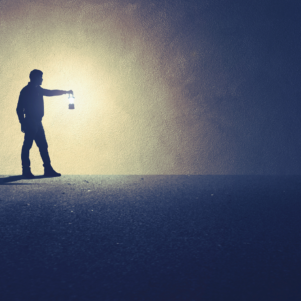
This article consist of extracts from an event hosted to celebrate World Philosophy Day at the Main Centre of New Acropolis in Mumbai India.
As part of the ongoing celebrations that New Acropolis spearheaded in over 400 centres across 50 countries, in Mumbai, New acropolis India (North) hosted a panel discussion around the theme of Philosophy in Action: Victory of Light over Darkness, in an attempt to understand practically what we can do to live a more meaningful life, and bring an ethical axis to our every action. The panellists were all Acropolitan teachers and included Sivan Barzilay, Branch Manager of New Acropolis Main centre in Mumbai, an acropolitan for over 26 years, and Harianto Mehta and Rahil Mehta, both Acropolitans for over 14 years.
Moderator: Good evening, everyone. As we begin with the panel discussion, we look for inspiration to Delia Steinberg Guzman, who was our international president for 29 years. We will base our conversation today on her book, Philosophy for Living. Let’s begin with an excerpt from Delia’s book.
Philosophy that truly answers our deepest questions, has to be practical, very practical. When we have a question and when we are offered an answer, we have to be able to put it into practice in life. If an answer is practical, it means that it has vitality, that I can introduce it into my way of life. If I can’t do anything with that answer, why would I want it? If the answer is never going to go beyond my mind, why would I want it? If the answer doesn’t solve my problems or difficulties, why would I want it?
In this light, what is philosophy for you, and how has it changed you in the years that you have practiced it?
Sivan: Well, as far back as I remember I always had a sense that there is more to life, there is a meaning that I don’t yet understand. And a search awakened inside of me. At first, I didn’t even know what I was searching for. Today I know that I was searching for a framework, a structure that will help me to understand how to unveil the mysteries of life that I see outside of me. But even more, for a place that will help me to become… and find the ability to follow what I understand as right and true. In other words, to unveil the mysteries within myself.
People can explain and live philosophy in many different ways and each way is valid.
But, if I can summarize what it gave to me, well three things, among many. One, it allowed me to develop a very strong compass to discern between right and wrong, between good and bad, between real and non-real. The second thing is it helped me to develop a very clear identity of who am I, and I think that is imperative in today’s world when there are so many conflicting pulls. And third, it helped me to live a life of joy, because what is a more beautiful gift than the gift of life?
Harianto: I remember that it seemed like there was a scheme of life that was already set out for me. I had to be a good son, a good student, find a good job, get married… I never dared to ask what is the meaning of this ‘good’. Nobody ever taught me that this is something you need to discover and identify for yourself. So naturally, I defined good as what others said, and very quickly, I saw myself simply reflecting what society, my parents and my teachers expected. And this is very, very tiring, because one cannot drag oneself through life. One has to have a dream, one has to have some direction. And of course, I didn’t know it at the time, but I started on some search. I think this search culminated when I discovered what philosophy really meant: That it’s very natural to ask these questions and that in fact, I was not the only one. And more importantly, that as a human being, I have the ability, if I dare, to perceive answers for myself – firstly because there is a tradition of teachings, a direction that has been offered through the human heritage, regardless of religion, culture and geography. And secondly, that there is a framework in which to learn to exercise what these answers imply.
Moderator: I would like to connect this with a pertinent quote from Delia’s book.
We are interested in seeing things as they are. Facing reality and accepting the fact that we have been born into this world and into this period of history, it is our responsibility to act to the extent of our possibilities and to feel part of our society with its virtues and its defects.
So in this light, I want to understand, what is darkness?
Rahil: It’s clear that we are in pretty challenging times. For example, there are wars in different parts of the world, and quickly our attention moves from one to the other. Is it our will that’s expressing, or is it social media? At the same time, we are participating in an international celebration of World Philosophy Day, the promotion of which was through social media. So, the same channels can be seen as a challenge, or as an opportunity.
What I want to emphasize, is that darkness and light, we can’t speak of one without the other: if we perceive the darkness, uncertainty and confusion, it’s almost certain that there is also light lurking somewhere. Now, it’s up to us to seek out this light. This is a human reality, and what it means to be a human being; the idea that there is darkness, and there’s light, and if we have an inner compass, a manner to cut through this darkness and to bring some clarity, we can find a way forward, and find this light.
And this is a valuable message. Darkness is much more an opportunity, if we can just see it for what it is. Therefore as philosophers can we say with conviction that yes, there is a time of darkness, so what is our work? Let us stand for the light.
Moderator: Yes, Delia said something similar…
We have an absolute faith in the human potentials that lie dormant in the majority of cases. It is just a question of activating them appropriately. In the same way, if we are aware of the cycles of history, we will know that after a confused and violent period, lethargic in terms of spiritual values and driven by material ambitions, there must come another time in which the sanity and the sense of fraternity which today are hidden will be restored.
So, how do we utilize this human potential to overcome darkness?
Sivan: I want to tell you a secret. There is only light. There is no darkness. Because darkness is not the opposite of light, it’s just the absence of light. So, our focus needs to be on the light and how to work with the light. Because if we don’t know how, then the result will be that there will be more darkness … and in extreme darkness, there are some characteristics and opportunities that we need to learn to identify.
Now, I’m referring to a light that lies within each one of us. Tradition says that millions of years ago there was a moment when those who escort and guide humanity gave us a gift. A gift which can be described as a flame, a spark. Manas, as it is known in Sanskrit. And each one of us has it. There is no human being that doesn’t have this flame. And in times of darkness this flame is great, because it allows us to see a little bit more than what we could if there was only darkness.
For light to be transmitted, it’s enough that only one person has protected their light, because we don’t need much, we need only one light to light up all of humanity. One person that will guard his flame so well that he will be able to enlighten the whole world. Even at its dimmest, it’s just a matter of strengthening it. We need to learn to develop it, and to protect it, and especially when there is less light outside, it is even more important that we safeguard it, and strengthen it, so it flourishes.
Harianto: It’s said in some traditions, that even the gods are envious of human beings, because the gods don’t have a choice (they already made their choice). But the human being has a choice: he has the ability to respond to the base desires that pull him into the external world. But he also has the option to really be a god, to dare to live by virtues and morality; the ability to be good as a result of my choice, not as a result of the law, or how other people would see me.
Yes, there is feeling, there is opinion, but there is also the ability to say, wait a minute. Am I able to perceive better? Am I able to choose to be better? We have the ability to truly be givers of light, justice and goodness. But ultimately, it’s a matter of choice. And what a great power that as a human being, I have the ability to choose.
Moderator: No one disagrees that we should be better, and that we want to be better. But is it really that easy to do? Delia says:
The experience of everyday life is enough to show us how difficult it is to put our ideas into practice. We often tend to remain on the level of dreams or rather of daydreams which calm our desires and save us from having to make the effort to convert an idea into a tangible reality.
How do we convert ideas into a tangible reality in a way that it can impact the world and bring light to the darkness that we see today?
Rahil: I think there’s one key that comes from the Indian tradition, that the human being himself has a dual aspect. In the ancient Indian epic, the Mahabharata, there was this legendary, iconic battle that happened between the Kauravas and the Pandavas. Maybe we can see the Pandavas as the light, the virtues and the strengths that we have. And the Kauravas as those internal challenges that we need to work on, to shed light on, so that we may be more light. I think it’s most important and practical to enter into the battlefield and say, this battle is within me – I have the darkness and the light, and I know that it’s an eternal turmoil, but I’m going to be the example of transformation.
I also think there’s a key in the name New Acropolis. There’s new and there’s acropolis. What is Acropolis? It’s a little fortified, guarded place on top of a hill in Greece. But it’s much more than that, because that Acropolis will pass, but what will endure is the idea: the idea of a higher place within each one of us. It’s something that we need to guard. And there it is, my goal, my responsibility.
New doesn’t mean that there’s something new to invent. The battle of light over darkness, whether it’s the idea of Diwali, or the inner war that we spoke about in the Mahabharata, is not a new idea. But we need to revive these timeless ideas through our actions, in a way that we can be an example that it is possible. Today for example, we are a room full here, and there are maybe 500 rooms like this, across the globe, that are celebrating World Philosophy Day. If everyone plants a seed, a seed naturally grows into a tree, and there you have it – an idea, that we work on together, that becomes a path. This is New Acropolis, this is philosophy in action, this is the victory of light over darkness, not a one-time victory but the idea that this light can be victorious again and again and again.
Harianto: I want to share this idea of the spirit of volunteering. From a philosopher’s standpoint, I think the spirit of volunteering is something a little bit deeper. Not just an activity to do when I have the time and I’m able to fit it into my calendar. The spirit of volunteering that I refer to is an attitude. It’s an identity. For example, how many of you here are fathers? And, when you are unwell, annoyed, stressed with work, do you stop being fathers? What if similarly, we can capture this identity of who I am, as ‘a good human being’? And that ‘goodness’, I volunteer to keep enlightened all the time, everywhere. When things are challenging, I make extra effort to guard my light. And when my light is flourishing, I offer it in the spirit of volunteering to transmit it, to share it.
But to practically build this spirit of volunteering, means to be constantly on the boundaries of our comforts. If I truly identify as a philosopher, and awaken this identity of the volunteer within me, keeping alive this identity that I belong to something larger than just my own individual sphere, then I have the ability in spite of a bad mood, to still be generous. I can be not well, or I can be stressed with my finances, but that doesn’t need to come at the cost of my ability to serve life. Obviously as a human being, I’ve come here for something more than my bank balance: to always maintain that identity of the human being.
Sivan: To answer your question – is it difficult or easy, yes, it is difficult. So what? Who promised us an easy life? We come here with a purpose: to live life, to grow, to evolve. This concept, which we today value so much, that everything needs to be so comfortable…so comfortable, that we fall asleep, is actually a strange idea. Just look at nature, nothing in nature is so comfortable. There are earthquakes, tsunamis, volcanic eruptions, all kinds of things which do not make life comfortable. So, I’m not saying that we should not look for comfort, but not as an aim, because then we might fall asleep. And we didn’t come here to fall asleep. So the fact that it’s difficult, is okay. It’s part of the game. It’s part of the rules. It’s part of life.
Let’s learn from the plants. In which direction are they going? Up toward the sun. When you put a seed in the ground, until you see it sprout above the ground, does it go through challenges? Of course! it needs to open its skin and go through the soil, which is sometimes very dry and hard. But it comes out victorious. In which direction does the river go? It goes to the sea. And does it have challenges on the way? Of course. But we are human beings! We want an easy life. We want comfort. Maybe because we have forgotten that we too have a direction. So the question is not whether it’s difficult or easy, because it is difficult. So what? It doesn’t mean that it’s not joyful.
And to add to what Rahil mentioned about the name New Acropolis, new refers to the movement forward, and acro is a movement upward. But polis refers to city, meaning that philosophy is also a social endeavour, implying that to be a philosopher, as we practice it, means that we do it collectively. And there is a key in doing it together: the key is generosity.
If you do it for yourself, you go some part of the way… till it’s comfortable. But when you try to be good in order to be an example to others, when a parent is courageous in order to be an example for his child, that takes it much further. And I think that is really the secret of how to allow the light within ourselves to overcome the darkness. It’s not easy, but it’s possible.
And to tell you the truth, there is no choice. We have to go forward. If life evolves and life goes forward, then human beings also have a role to play. All traditions that speak about the light overcoming the darkness, say that we have inside of us a key that will help not only me to move forward, but all life to move forward. Because we are life. We are part of life that evolves. So do it for others. Take a resolution today: I will do it for somebody else, not for myself. And I promise you, it will work.
The entity posting this article assumes the responsibility that images used in this article have the requisite permissions
Read the original article on http://theacropolitan.in
Permissions required for the publishing of this article have been obtained
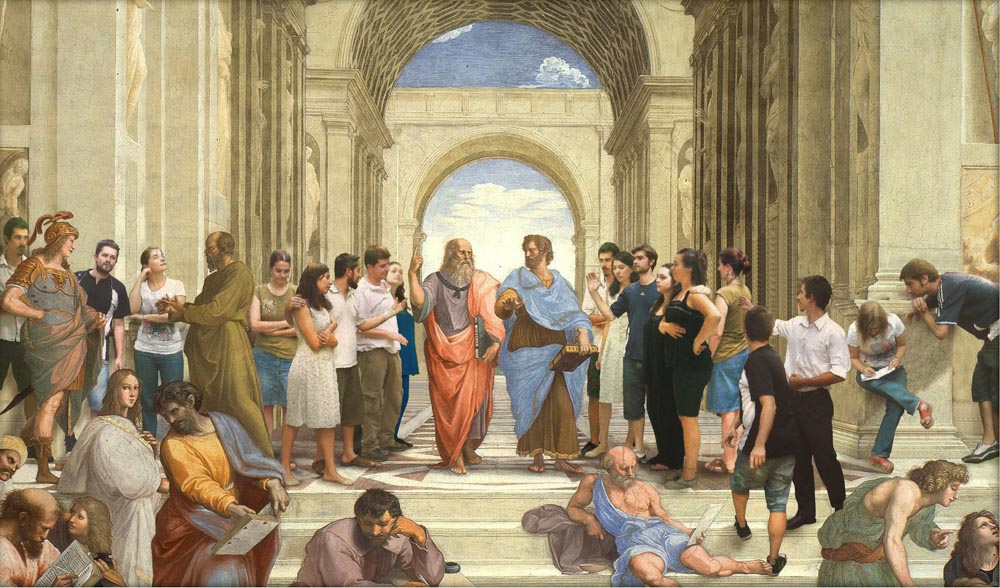
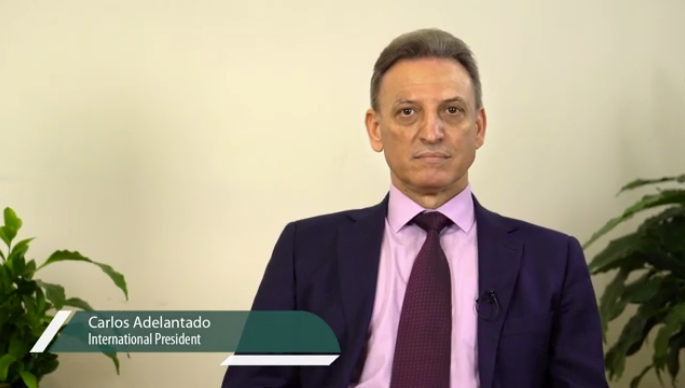
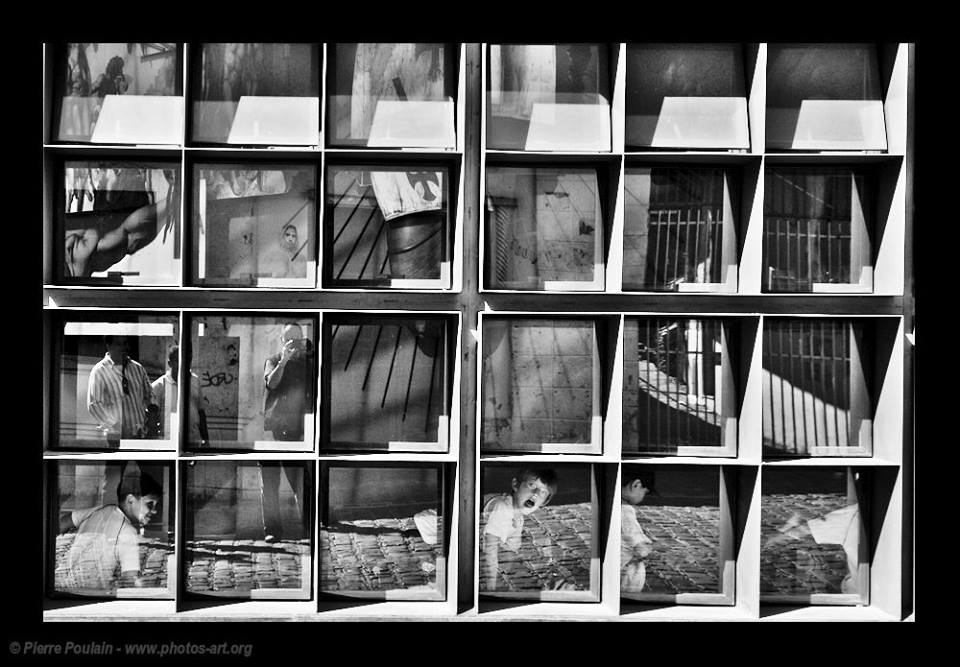
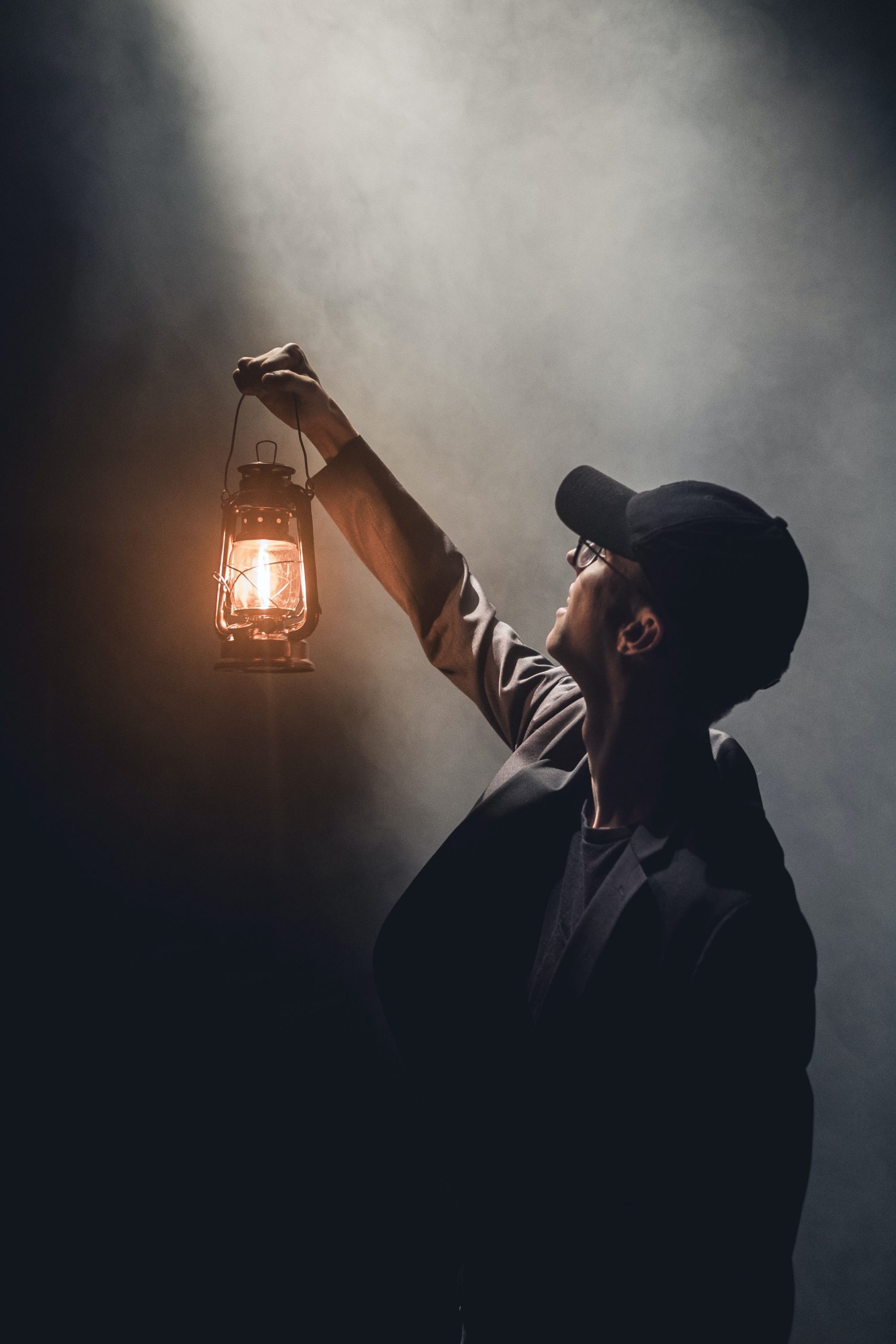
What do you think?